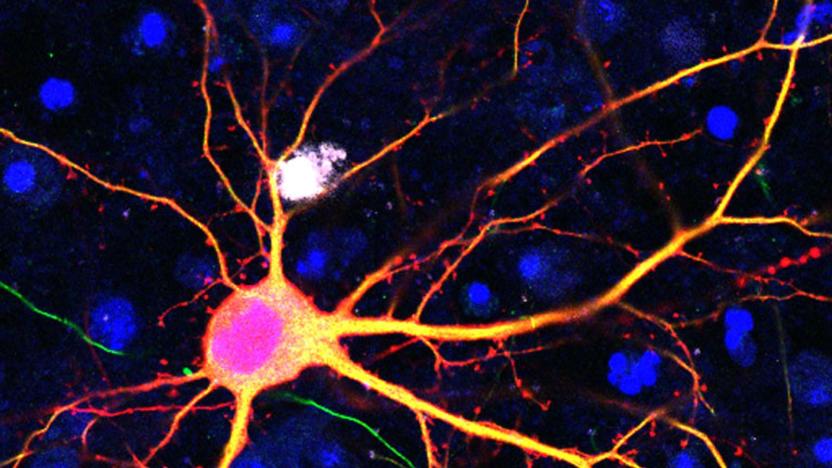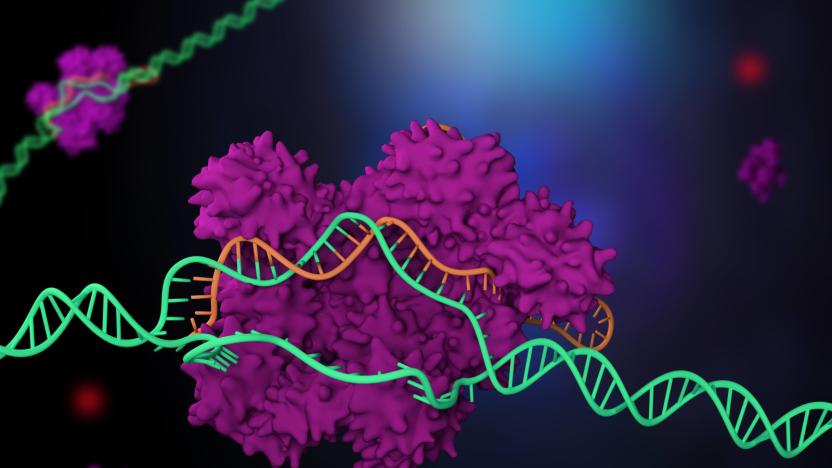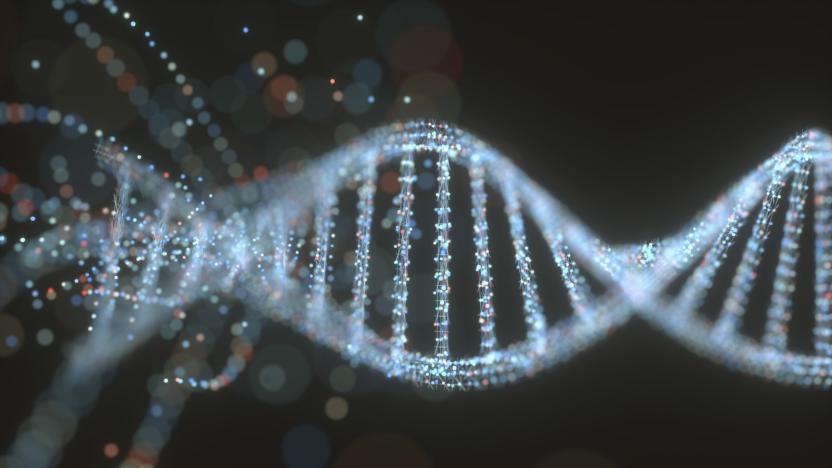crispr-cas9
Latest

Gene editing tool could treat many diseases created by mutations
The use of gene editing to eliminate diseases has numerous challenges, including the not-so-small problem of dealing with mutation-based conditions like Huntington's. Existing approaches that replace the gene could cause damage. Salk Institute scientists say they've created a tool that can perform edits when mutations are at work. SATI (Single homology Arm donor mediated intro-Targeting Integration) builds on HITI, a variant of the familiar CRISPR-Cas9 gene editing technique, deals with mutations by inserting a healthy copy of a troublesome gene into the non-coding region of DNA. As the DNA repairs itself, the normal gene integrates into the genome alongside the old one -- it eliminates the harm from the mutation without taking risks.

CRISPR gene editing has been used on humans in the US
The first human trials in the US for CRISPR gene editing are officially underway. A University of Pennsylvania in Philadelphia spokesman has confirmed to NPR that two cancer patients, one with myeloma and one with sarcoma, have received CRISPR treatments after standard treatment didn't hold. The trial removes, modifies and reinserts immune cells in hopes they'll destroy cancerous cells.

CRISPR gene-editing experiment may have impacted twins' brains
Researchers have published research into a gene at the heart of a controversial human gene-editing experiment, lending more weight to the theory that it inhibits cognitive function. But no one knows how the method may have affected the minds of the Chinese twins at the center of the issue. One scientist involved in the study, University of California, Los Angeles neurobiologist Alcino J. Silva, said the "mutations will probably have an impact on cognitive function," but it's impossible as yet to predict the precise effects. The CRISPR-Cas9 gene-editing technique has previously been linked with unintended DNA damage.

